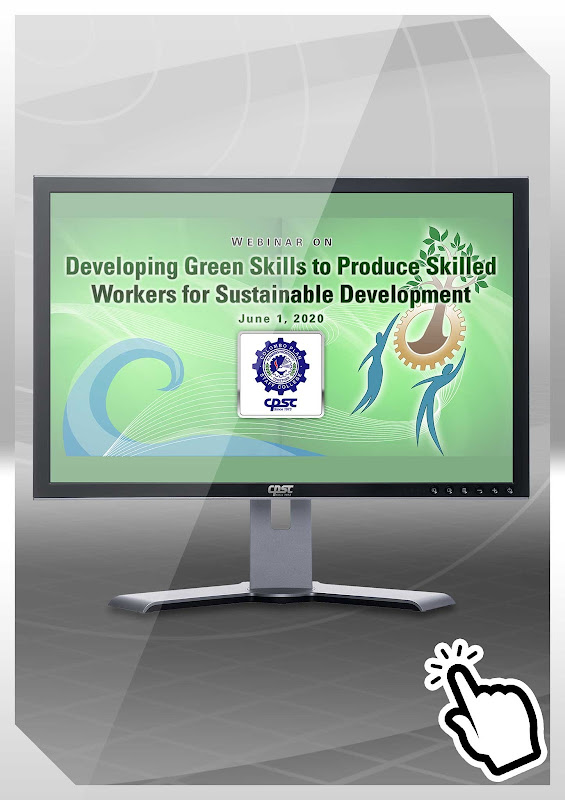
Program Type: Webinar /
June 1, 2020 | 9:30am Afghanistan | 10:00am Maldives, Pakistan | 10:30am India, Sri Lanka | 10:45am Nepal | 11:00am Bangladesh, Bhutan | 11:30am Myanmar | 12:00nn Thailand | 1:00pm China, Malaysia, Mongolia, Philippines, Singapore | 3:00pm Papua New Guinea | 5:00pm Fiji
Webinar Presentation/s
by Ramhari Lamichhane, PhD
Global Goals for Sustainable Development (Video)
by Engr. Abdul Ghani Rajput
Eco Village Development Programme (Video)
Background and Focus
Several research reports predicts that natural resources, climate and globalization will shape the future of the world. With depleting natural resources, the world is looking for viable alternatives in terms of generating renewable energy. United Nations report on Green Technological Transformation asserts that overall assessment on the countries’ policy and implementation on saving the environment shows unimpressive results. As the earth’s population is expected to reach nine billion people by 2050, it is pertinent to evaluate the pace of productive economic expansion – this growth must be balanced with respect to the human and natural capitals. If not, the whole world will face the potentially irreversible changes in the earth’s ability to sustain its inhabitants.
Sustainability is a critical issue in the modern world. Damages from deforestation, excessive carbon emission, toxic and non-biodegradable waste will affect the lives on this planet. To maintain environmental quality, we need clean air, non-toxic water, renewable energy, stable climate, and green waste management. Future generation is expecting a better world for them and sustaining the mother earth must begin with green awareness from the early age. However, literature has shown that awareness of green practices and technology among young individuals are only moderate.
The move towards a “green economy” has been gaining momentum in parallel with the international debate and negotiations on climate change in order to achieve sustainable development. Greening TVET is one of the key areas where we have to develop human resources and TVET has to respond and acquire a modern strategic mindset in meeting the future at the forefront of global challenges. This will necessarily require much more interdisciplinary teaching, research and innovation.
The green skills are the know-how and the abilities to perform and solve problems in the green occupations. They include the mindset, knowledge, abilities, and attitudes that an individual possesses to live in, to work in, to develop and to support a sustainable and resource-efficiency environment. Green skills are required for those who wants to work in green sector. Green skills are needed to develop green lifestyle and green technology. Green technology is defined as an application of science and technology to reduce carbon emission and to conserve the environment. Green or clean technology comprises devices, products, apps or systems that are powered by renewable energy, environmentally friendly, low carbon emission, and conservation of the energy and resources. The main types of green technology are: green energy, green building, green transport, and green chemistry.
The objective of this webinar is to share the concept of green skills to produce green skilled workforce and applications of green skills that are necessary for sustainable development. The TVET sector is playing a very important role to produce future workforce to operate green technology. Most of the TVET practitioner only know about generic skills, technical skills, and employability skills, but their knowledge on green skill is very limited. Therefore it is important to share the green skills techniques and practices to TVET professional. The outcome will be aligned with different interpretations and expectations of green skills concept from the various stakeholders’ perspectives.
Objectives
- To understand the concept of Green TVET and green skills development.
- To share the applications of green TVET for sustainable development.










